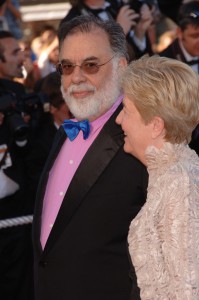The winery makes class act pinot noir, among other varietals, and it is so revered that it has a waiting list of 8,000.
But as co-founder Dan Kosta put it. “There was a lot of work leading up to our ‘overnight success’ in 2005. It’s kind of like pro athletes making their jobs look easy. What people don’t see are the years of preparation, holding multiple jobs, hitting the streets constantly and near-failing numerous times.”
In delving into Kosta’s quote, I found several junctures where the odds were definitely against the winery. Here are some of the interesting twists:
Kosta said: “In 2001 Michael and I were faced with the prospect of closing the doors altogether. We had no money, very little inventory and minimal business infrastructure. But we charged on, setting up meetings with friends of my family, eventually sitting down to a momentous meeting with the Costello family, Jim and his two sons, Chris and Casey. Chris would become the third managing partner, along with Michael and me, and he would lead the task of raising new money for a Kosta Browne rebirth. As we neared crush in 2001, we were having a very difficult time raising the necessary funds to keep the business going and once again, we were faced with the very real possibility of having to shut down operations. But again, we pushed on. It was a difficult time, but we made it through the next couple of years, until we established a foothold in 2004.”
Co-founder Michael Browne said the first four or five years after creating the brand in 1997 were merciless.
“I had two other jobs,” Browne said. “A full time winemaking position at Deerfield Ranch, a night job at John Ash and then Kosta Browne. I was working seven days a week most of the time. Harvest was very difficult because I would go from the pinot harvest at Kosta Browne directly into the cab, merlot and zin harvest at Deerfield. Essentially two harvests in a row. We also had our first child in January of 2001 and my wife Sarah stayed at home to raise him. We had a tough time raising money for the business which added a lot of pressure. I wanted to give up many times but I was too far in and too obligated to let go. Not only was I obligated to my partners but also to my family to keep the bread on the table. Very stressful times for sure.”
Kosta said failure was simply not an option.
“We truly had very little to lose so rather than quit, we used what little resources we had to adapt and confront challenges,” Kosta said. “We learned how to remain nimble and turn challenges into opportunities. To this day, we see glitches and hurdles as opportunities to show everyone how well we can tackle problems. I think we learned a lot of these skills in the restaurant business. The restaurant business is a performance business. Challenges and obstacles present themselves every night, whether in the kitchen or on the floor. However, like a stage play, there is no safety net. The show must go on. You just solve problems. Period. I think that is how we approach the wine business as well.”
Browne said he refused to quit because of a promise he made to himself.
“In 1999 I told myself I would give this business 10 years hard time,” Browne said. “I also did not have too much of a choice because I needed to provide for my family. With all three jobs I could support my family. If I changed anything I would not be able to do so. Robert Rex at Deerfield Ranch was a big help for me because he had gone through many hardships with businesses and he kept on going. His outlook to the challenges of business were very helpful and comforting. He helped me quite a bit with this. I also knew this was my one shot to break into the wine business and I wanted it bad. Other than that I think it was just sheer determination.”
Kosta’s advice for other players in the wine industry is to not to dwell on problems.
“Focus all energy on solutions and success,” Kosta said. “Always be willing to adapt to your surroundings without falling into a ‘follower’ mentality. The best brands follow their gut and heart and have a well thought-out plan for how to achieve their goals. We found disarray in lack of planning. We found success in a thoughtful road map to our own goals.”
Browne’s advice? Go the distance.
“Put your head down and go,” Browne said. “Give it everything you have and try to keep your sanity. Work as hard as you can but work smart. Take the successes and put them in your back pocket so you can focus on the challenges. Try to keep some time for yourself and your family because you will not get that time back. This is the toughest thing to do in my opinion. Look at the wine business as a long term venture. Nothing comes quickly in the wine business. If you try to leap forward too quickly you will most likely get burned. A life in wine is a lifelong experience and it can be wonderful but take your time and be the tortoise.”




